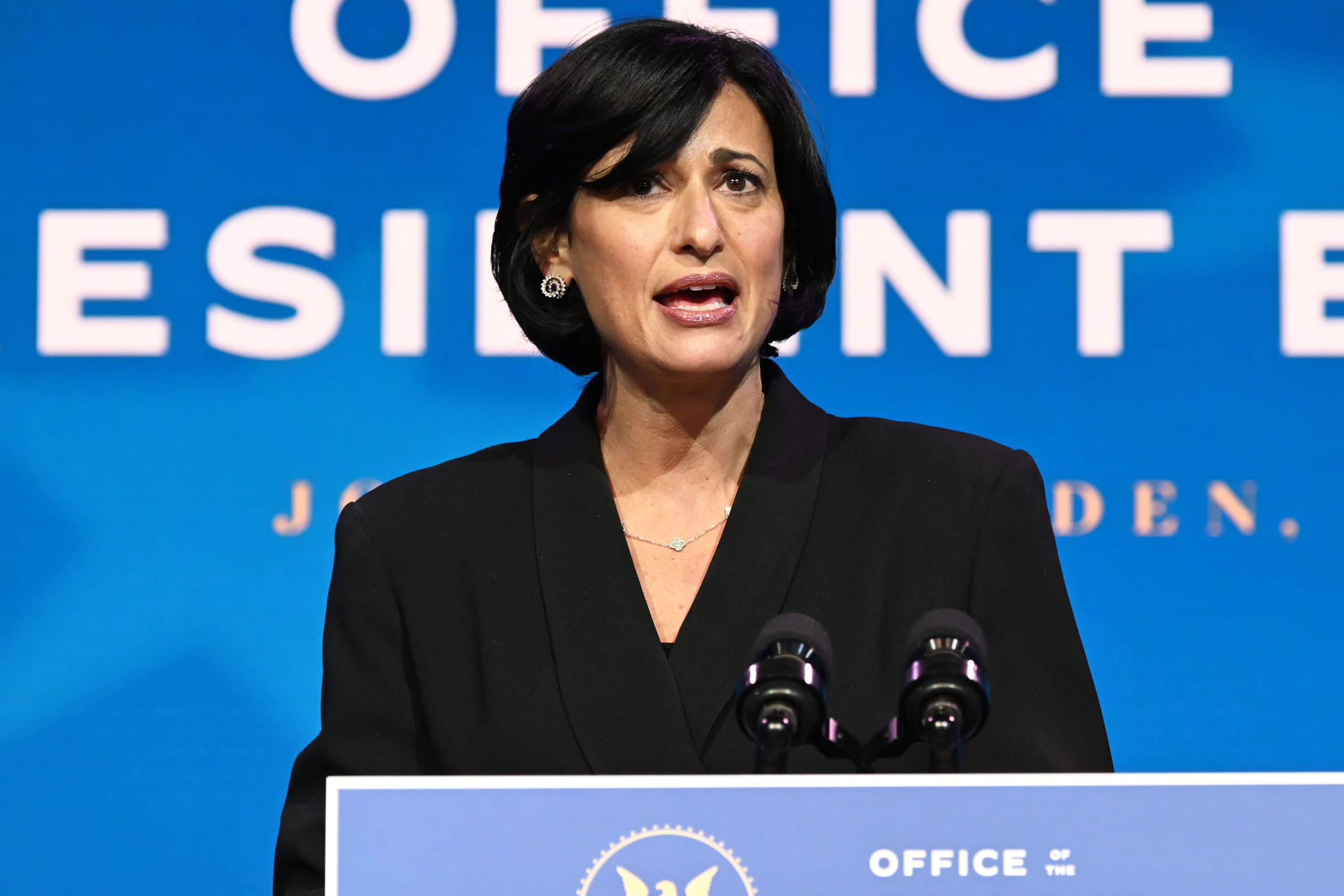Biden CDC pick confident there's enough Covid vaccine to meet target amid confusion over stockpile

Rochelle Walensky, who has been nominated to serve as director of the Centers for Disease Control and Prevention, speaks after US President-elect Joe Biden announced his team tasked with dealing with the Covid-19 pandemic at The Queen in Wilmington, Delaware on December 8, 2020.
Jim Watson | AFP | Getty Images
President-elect Joe Biden's top health officials are confident the United States will have enough coronavirus vaccine doses to meet the incoming administration's goal of inoculating 100 million people in 100 days despite a slower-than-expected rollout of the life-saving drugs.
"That is what the president elect has promised. It will be a hefty lift, but we have enough to do that," Dr. Rochelle Walensky, Biden's pick to lead the Centers for Disease Control and Prevention, told CBS' "Face the Nation" on Sunday.
The president-elect has vowed to place suppressing the virus as a top priority once he's sworn into office in the coming days. On Friday, Biden laid out a five-step plan that includes expanding the number of vaccination sites across the U.S., which he believes will accelerate the nation's ability to get more vaccine doses into Americans' arms.
The U.S. has fallen far short of its goal of vaccinating 20 million people by the end of last year. While the Trump administration's Operation Warp Speed has delivered over 31.1 million doses across the country so far, only 12.3 million people have been inoculated, according to the most recent CDC data.
In an effort to pick up the pace, the CDC issued new guidelines for state leaders on Tuesday that expands vaccine eligibility to everyone age 65 and older as well as to those with comorbid conditions, like diabetes. The federal government said it would also begin releasing doses that were being held in a "physical reserve" to ensure enough supply.
A senior citizen receives the Moderna Covid-19 vaccine in Tucson, Arizona, on Friday, Jan. 15, 2021.
Cheney Orr | Bloomberg | Getty Images
Both Pfizer and Moderna's Covid-19 vaccines, which are the only two so far to be granted emergency authorization in the U.S., require two shots several weeks apart. The reserve was meant to ensure people who had their first shots would be provided a second dose later on.
Several Democratic leaders, however, accused the Trump administration of misleading them about the extra supply of doses after The Washington Post reported on Friday that no such reserve of vaccines existed. Health and Human Services Secretary Alex Azar responded on Twitter Saturday, saying that they had a stockpile of second doses that were released toward the end of December.
The HHS chief said that the announcement this week "was that we are releasing the remaining reserved second doses according to the established cadence—ensuring second doses would be available at the right interval—and that going forward we'd no longer have a reserve of second doses."
Biden's incoming White House chief of staff Ron Klain, the former Ebola czar under President Barack Obama, told CNN's "State of the Union" on Sunday that the new administration is "inheriting a huge mess." However, Klain said he was confident that there will be "continued supply and distribution of that supply to hit that target of 100 million shots in 100 days."
Part of Biden's five-step plan to ramp up vaccine distribution includes greater use of the Defense Production Act, a wartime law that allows the president to compel companies to prioritize manufacturing for national security reasons.
That will allow Biden to increase the number of key resources that will strengthen the supply of doses, Klain said. For instance, some of Pfizer's vaccine vials were found to have an extra sixth shot in them, which could increase the supply of doses by 20%, Klain said.
The federal government, which sends supply kits to the states with items like needles and syringes to administer the drugs, didn't account for the extra doses in their original planning, said Jessica Daley, a pharmacist and vice president with Premier, which purchases medical supplies for thousands of hospitals.
Some health-care providers have since had to dip into their own reserves or have tried securing extra supplies on their own, Daley told CNBC on Wednesday. The Biden administration will ramp up production of those necessary syringes to access the extra doses, Klain said on Sunday.
"One thing that's clear is that the issue of getting 100 million doses in the first 100 days is absolutely a doable thing," White House health advisor Dr. Anthony Fauci, who will become a medical advisor to Biden once the president-elect is in office, told NBC's "Meet the Press" on Sunday.
Fauci added that the use of the Defense Production Act will mean the U.S. won't be "hesitant to use whatever mechanisms we can to get everything on track," such as vaccine supplies and Covid-19 testing.
"The feasibility of his goal is absolutely clear," Fauci said of 100 million doses in 100 days. "There's no doubt about that... it can be done."
Dr. Scott Gottlieb, the former Food and Drug Administration chief in the Trump administration who sits on the board of Pfizer, said on Sunday that the Biden administration will likely hit their goal of 100 million doses, and Biden's five-step plan "makes a lot of sense."
"I think the issues going to become demand," Gottlieb told "Face the Nation." "I think they're going to have the supply in place and the distribution in place to do that."
— CNBC's Tucker Higgins and Berkeley Lovelace Jr. contributed to this report.
Disclosure: Scott Gottlieb is a CNBC contributor and is a member of the boards of Pfizer, genetic testing start-up Tempus and biotech company Illumina. Pfizer has a manufacturing agreement with Gilead for remdesivir. Gottlieb also serves as co-chair of Norwegian Cruise Line Holdings′ and Royal Caribbean's "Healthy Sail Panel."
Read More

No comments